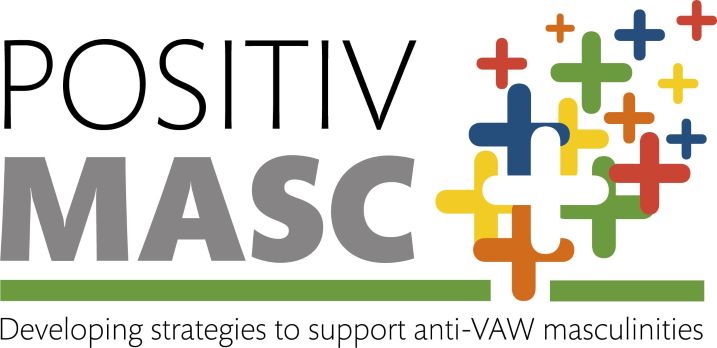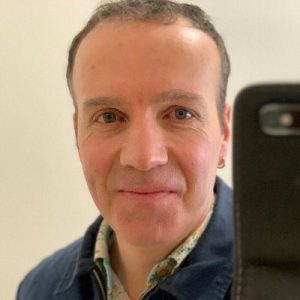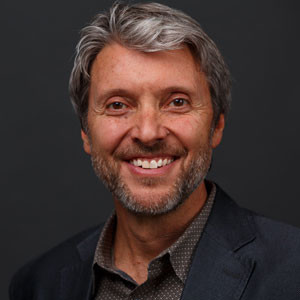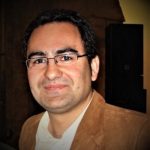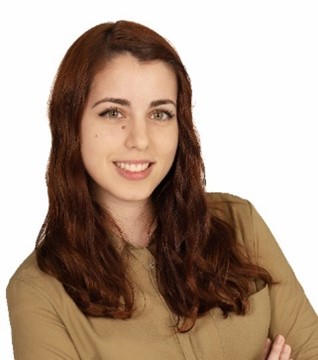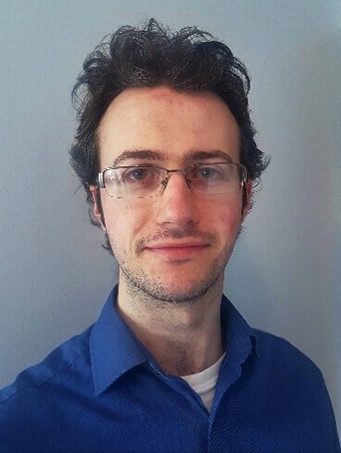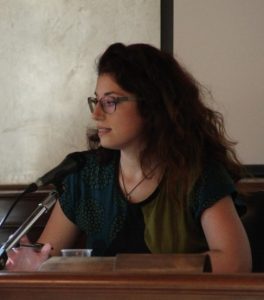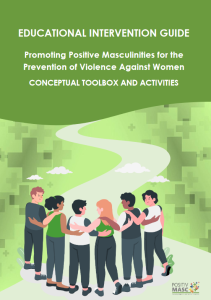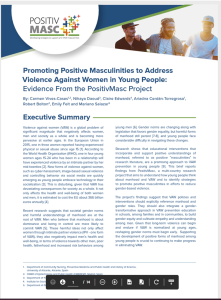11
Jul
19-20 October 2022 Online international conference – Engaging youth to promote positive masculinities to end violence against women
2022-07-11
October 19, 2022 10:00 AM
October 20, 2022 09:30 AM
Registration
Please register for the online conference in advance for free.
The conference is a collaboration between Karolinska Institutet, University College Cork, Ireland, Ben-Gurion University of the Negev and Universitat d’Alacant.
Speakers
Dr. Michael Flood, Professor, QUT
Michael Flood’s research agenda focuses on gender, sexuality, and interpersonal violence. Dr. Flood’s research at present is focused on interpersonal violence and its prevention, and in particular on engaging men in violence prevention, and on men, masculinities, and gender justice.
Dr. Flood has published widely on topics including violence against women and violence prevention, men and masculinities, profeminist men’s advocacy, male heterosexuality, fathering, and pornography. He has made a significant contribution to scholarly and community understanding of men’s and boys’ involvements in preventing violence against women and building gender equality. Dr. Flood has published 44 journal articles, 29 book chapters, a sole-authored book, a co-authored book, two edited collections, 37 commissioned research monographs, and over 80 other publications. He is the author of Engaging Men and Boys in Violence Prevention (2019), the co-author of Masculinity and Violent Extremism (2022), the lead editor of Engaging Men in Building Gender Equality (2015) and The International Encyclopedia of Men and Masculinities (2007).
Dr. Gary Barker, President and CEO of Promundo-Equimundo.
Gary Baker has conducted extensive global research and program development around engaging men and boys in gender equality and violence prevention and is a leading voice for the worldwide effort to establish positive, healthy dynamics between men and women.
Gary is the co-founder of MenCare, a global campaign to promote men’s involvement as equitable, non-violent caregivers, and co-founder of MenEngage, a global alliance of more than 600 NGOs and UN agencies working toward gender equality. He coordinates IMAGES (the International Men and Gender Equality Survey), a pioneering multi-country survey of men’s attitudes and behaviors related to violence, fatherhood, and gender equality, among other themes. He is a member of the UN Secretary General’s Men’s Leaders Network and has been honored with an Ashoka Fellowship, a fellowship from the Open Society Institute, and the Vital Voices Solidarity Award. Gary earned a PhD in child and adolescent development from Loyola University in Chicago and a Master’s degree in Public Policy from Duke University.
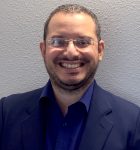
Mariano Salazar, Karolinska Institutet, Sweden
Mariano Salazar MD, MSC, Ph.D. Dr, Salazar is a mixed-methods researcher at the Department of Global Public Health, Karolinska Institutet, Sweden.
His research focuses on the interaction between gender, violence against women and sexual/reproductive health. He has collaborated with other researchers to study emergent social issues such as early teenage pregnancies, children´s resilience, and gendered constructions of stigma and discrimination to people living with HIV, among others. One of his goals has been to promote the use of gender and human right lens when designing and conducting research. To this end, he has implemented postgraduate training programs to foster the application of gender in all aspects of health/social research.
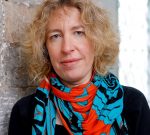
Claire Edwards, University College Cork, Ireland
Dr. Claire Edwards is Lecturer in Applied Social Studies at University College Cork. Her background is in social policy and social and cultural geography. She has significant expertise of conducting research using qualitative research methodologies, and much of her work has focused around conducting research on disability and disabled people’s lives. She has published widely on this topic across the disciplines of social policy, geography, sociology, and law. Most recently, her research has included violence, hostility, and fear of crime as it is perceived and experienced by people with disabilities in Ireland, including gender-based and sexual violence.
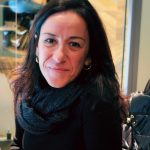
Carmen Vives Cases, Universitat d´Alacant, Spain
Professor of Preventive Medicine and Public Health at the University of Alicante (since 2018). Doctor and graduate in Sociology (2004 and 1998 respectively). Master’s Degree in Public Health from Miguel Hernández University (2005). Head of the Equality Unit of the University of Alicante (from 2021). President of the Spanish Society of Epidemiology (2016-2018). Member of the Spanish Centre for Biomedical Research Networking (CIBER) in Epidemiology and Public Health since 2006. Principal investigator of different national and European projects.
Her research activity focuses mostly on the study of social inequalities in health by gender, migratory or ethnic status, and age, among others. A noteworthy aspect is her dedication to the issue of gender violence from the perspective of public health, consolidated with her participation and leadership in different national and European projects. She has more than one hundred scientific publications of recognised quality, with three 6-year research and 1-year transference activity periods accredited by the Spanish National Committee for Research Activity Evaluation. In October 2019, she was awarded as Honorary Doctor (Doctor Honoris Causa) by the Faculty of Medicine of Umeå University (Sweden).

Nihaya Daoud, Ben-Gurion University, Israel
Nihaya Daoud (MPH, PhD) is a professor of public health and social epidemiology at the School of Public Health at Ben-Gurion University (BGU) of the Negev in Israel.
She is the director of the Research Center for Health Equity and Health Promotion at the Faculty of Health Sciences at BGU. Her research interest includes health inequalities, health policies, racism and discrimination and anti-racism in the healthcare system. She studies social determinants of health among Indigenous peoples, immigrants, internally displaced persons and ethno-racial minorities.
Her research on women’s mental health explored pathways to anxiety, depression and postpartum depression and barriers for treatment among minority and indigenous women. In the area of gender-based violence against women, she conducted national and international research focusing on the prevalence and recurrence of intimate partner violence (IPV) and health impacts of violence. Her recent research examined the healthcare system response to violence against women, screening and detection of IPV and referral policies in the healthcare services, healthcare services among women victims of IPV, and the economic burden of IPV. As well as the use of barriers to mental healthcare services for women who experience IPV. She is one of the primary investigators of the PostivMasc project, which is a multi-country project aiming to promote positive masculinity among young people.
Schedule
| Time | October 19th |
| 10.00-10.30
|
Welcome
Speaker: Dr. Mariano Salazar. |
| 10.30-11.15
|
Speaker 1. Prof. Michael Flood.
Topic: How do we critically think about masculinity and VAW today? Chairperson: Dr. Mariano Salazar. |
| 11.15-11.30 | Q & A |
| 11.30-11.45 | Coffee break |
| 11.45-13.00 | Paper session: How young people (men and women, 18-24 years) understand masculinities and VAW?
Chairperson: Dr. Claire Edwards. Speakers: Spain: Ph.D. candidate Ariadna Cerdán-Torregrosa. Ireland: Dr. Claire Edwards. Sweden: Dr. Mariano Salazar. Israel: Dr. Mashlin Khouri. |
| 13.00-13.15 | Q & A |
| 13.15-14.15 | Lunch |
| 14.15-15.15 | Thematic session: Gender transformative intervention to promote positive masculinities and/or engage young people in VAW prevention. What works?
Chairperson: Prof. Nihaya Daoud. Speakers: Dr. Jorge Marcos-Marcos, Prof. Michael Flood and Dr. Gary Barker. |
| 15.15-15.30 | Q & A |
| 15.30-15.40 | Recap and reminder activities next day |
| Time | October 20th |
| 9.30-10.15 | Paper session: Strategies and action to promote positive masculinities: Findings from our multi-country concept mapping study.
Speaker: Prof. Nihaya Daoud. Chairperson: Prof. Carmen Vives-Cases. |
| 10.15-10.30 | Q & A |
| 10.30-11.15 | Session: Presentation of educational material, policy briefs, and videos.
Speaker: Prof. Carmen Vives-Cases and Dr. Krizia Nardini. Chairperson: Dr. Mariano Salazar. |
| 11.15-11.30 | Q & A |
| 11.30-11.40 | Break |
| 11.40-12.20 | Paper session: Promoting and overcoming barriers for positive masculinities: an example from Ireland.
Speaker: Dr. Robert Bolton. Chairperson: Dr. Fiachra Ó Suilleabháin |
| 12.20-12.35 | Q & A |
| 12.35-12.45 | Concluding remarks |
Jorge Marcos Marcos, University of Alicante, Spain
Jorge Marcos-Marcos, MPH, Ph.D., is a Lecturer at the Department of Health Psychology of the University of Alicante, Spain. He holds a Ph.D. in Gender Studies, a Bachelor’s in Social Anthropology, and a dual European master’s degree in Public Health and Social Protection. His work has been mainly concerned with health promotion and prevention projects and the design and implementation of qualitative and mixed-methods studies. His main research lines revolve around gender as a social determinant of health; specifically, the study of men and masculinities from a gender perspective. He was part of the group of experts invited by WHO-Europe to collaborate in the development of the “Strategy on the health and wellbeing of men in the WHO European Region”.
Ariadna Cerdán Torregrosa, Universitat d’Alacant, Spain
Ariadna Cerdán-Torregrosa is predoctoral researcher in Gender Studies at the Department of Community Nursing, Preventive Medicine and Public Health at the University of Alicante (UA).
She is a sociologist from the University of Alicante and Master in Research Methodology in Social Sciences from the Complutense University of Madrid. She has participated in several national and international research projects in the areas of gender and public health. Her ongoing doctoral thesis focuses on exploring the intersections of masculinities, gender-based violence, sexual orientations, and public health using different methodological approaches to develop strategies that promote gender equality.
Dr Robert Bolton
Post-doctoral researcher on PositivMasc at the Institute for Social Science in the 21st Century (ISS21) at University College Cork (UCC). Prior to this, Robert worked on another ISS21 project, ‘Unmarried Fathers and Shared Parenting’. Along with colleagues, he recently guest edited a special issue (October forthcoming) of Social Policy and Society on welfare stigma. Robert graduated with a PhD in Applied Social Studies at UCC in 2018. His research was an ethnographic study that focused on the performance of young masculinities in youth cafes in Ireland.
Krizia Nardini, MPH, PhD
Researcher and consultant in Gender Studies and Sexual Health. In 2020 she joined the Department of Community Nursing, Preventive Medicine and Public Health and History of Science of the University of Alicante (Alicante, Spain). With a background in anthropology and feminist methodologies, she is an expert on youth, gender, sex education and masculinities. Her work engages with academic and activist networks for gender justice, bringing theoretical and social intervention fields. She is specialized in transformative methodologies in research and gender-related projects implementation. She acts as co-coordinator of MenEngageIberia and active member of AMSA (American Men’s Studies Association).
Contact person
Mariano Salazar, Karolinska Institutet, Department of Global Public Health, mariano.salazar@ki.se
